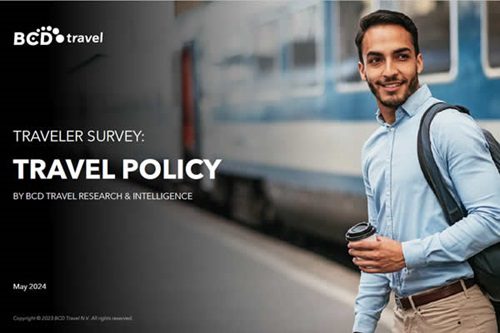 A comprehensive survey conducted by BCD Travel revealed a significant gap between corporate travel policy awareness and actual compliance among business travellers. Despite widespread knowledge of these policies, many travellers continue to book outside their companies’ guidelines, leading to increased costs and potential risks.
A comprehensive survey conducted by BCD Travel revealed a significant gap between corporate travel policy awareness and actual compliance among business travellers. Despite widespread knowledge of these policies, many travellers continue to book outside their companies’ guidelines, leading to increased costs and potential risks.
High Awareness, Low Compliance
BCD Travel’s survey, which included responses from over 1,200 business travellers worldwide, highlights a critical issue in corporate travel management. While more than 95% of travellers know where to find their company’s travel policy, and nine out of 10 have consulted it at some point, compliance remains a challenge. The survey also found that half of the respondents are satisfied with their company’s travel policy, yet two-thirds still book outside these guidelines.
Regional Differences in Policy Consultation
The disparity in policy adherence is particularly pronounced when comparing different regions. Craig Bailey, President of the Americas at BCD, noted, “Travelers in North America are less inclined to consult their corporation’s travel policy compared to those in Asia-Pacific and Europe. This behavior can result in more out-of-policy bookings, which not only incur extra costs but also pose risk issues.”
Frequency of Policy Communication
One contributing factor to this gap is the frequency of communication regarding travel policies. The survey indicated that a quarter of travellers in the Asia-Pacific region receive frequent updates about their travel policies, compared to only 15% in North America. This suggests that more regular communication could enhance policy compliance.
Common Reasons for Out-of-Policy Bookings
The survey identified several common scenarios leading to out-of-policy bookings. These include client meetings that require non-preferred transportation or accommodation and booking conference accommodations with suppliers not listed in the company’s preferred options. These deviations often necessitate additional approvals, creating administrative burdens and inefficiencies.
Strategies to Boost Compliance
Companies can proactively involve and engage employees in their travel policy to address these issues. BCD Travel advises integrating user-friendly solutions and leveraging data insights can positively influence traveller behaviour. For instance, BCD’s TripSource® booking and trip management solution provides real-time policy guidance, encouraging travellers to make compliant choices.
Desire for Flexibility
The survey also revealed that over one in five travellers find their company’s travel policy unresponsive to their needs or too restrictive. Many travellers desire more flexibility in booking transportation and accommodation, higher spending limits, and additional air travel amenities. These insights suggest that aligning travel policies with traveller preferences can enhance satisfaction and compliance.
Impact on Job Retention
Interestingly, while only 8% of travellers reported that travel policies influenced their decision to accept a job, a quarter indicated that these policies affected their willingness to stay with the company. The impact varies by region, with almost half of Asia-Pacific travellers considering travel policies a factor in their decision to stay, compared to 27% in Europe, the Middle East, and Africa, and 21% in North America.
Effective Onboarding Practices
Bailey emphasized the importance of introducing travel policies during the onboarding process. “New hires are eager to learn and understand company procedures. Explaining the travel policy’s relevance to company goals and its importance for cost savings, duty of care, and sustainability can foster early compliance.”
The BCD Travel survey underscores the need for companies to bridge the gap between travel policy awareness and compliance. By increasing communication frequency, offering flexible policies, and effectively engaging employees, organizations can enhance policy adherence, reduce costs, and improve overall travel management.
For more insights from the BCD Travel survey, click here.
Written by: My Thanh Pham
















